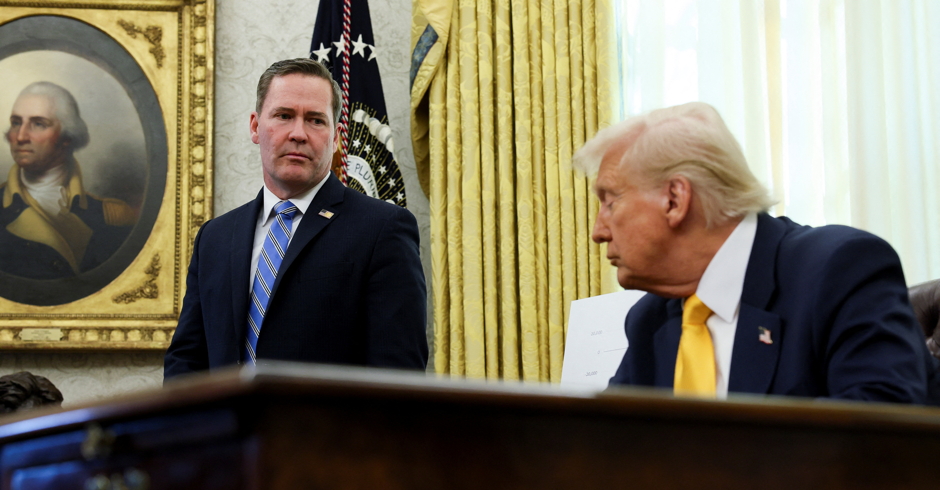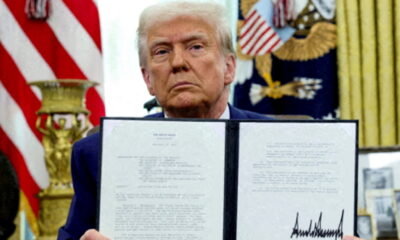Troy Davis and Jamey Rodemeyer: By A Jury Of Our Peers
Â
1
Troy Anthony Davis is dead, executed by the state of Georgia, September 21, 2011 at 10:00 pm. Ten days later, now that other stories have caught the media’s eye, Davis may seem forgotten. But in Harlem, where I live, his face stares out from orange posters plastered to lampposts along my street, announcing an emergency rally organized to save his life.
It feels like a bad dream, the kind you can’t shake for days: the final countdown to his death by the protests around the country, the supporters from all over the world, including politicians, celebrities and religious figures, asking that his life be spared so that questions about the fairness of his trial could be answered. That day, riding on the subway at seven o’clock, the original time set for his execution, I assumed Troy Davis was gone, only to arrive home and find out that he’d had another reprieve: the U.S. Supreme Court was considering his case; there was hope. Hours later, his appeal rejected, Davis was dead by lethal injection.
I didn’t know Troy Davis, and I don’t know whether he committed the crime he was convicted of or not. But I know that with Troy Davis dead, there won’t be another appeal for him, no new trial. There will be many more conversations about Troy Davis in the years to come, but the critical one, the one that might have saved his life, is over.
Execution is a curious kind of death. Some deaths are natural, others accidental, or premeditated; some people are killed out of jealousy, taken in the passion in the moment. But execution is death you can set your watch to. Knowing that at a specific time, at a specific hour, someone is going to be killed, creates a strange psychological predicament for all involved. Regardless of whether you believe the person is guilty or not, the instinct to preserve life is suppressed; you know they are going to be murdered and there’s nothing you can do about it.
Trying to make sense of the incomprehensible, we live out the mundane aspects of our lives against the backdrop of “justice being servedâ€: I have to go pick up the kids from school (Troy Davis will be dead in four hours), What are we having for dinner? (Troy Davis will be dead in two hours), I forgot to pick up the dry-cleaning, will you get it tomorrow? (Troy Davis will be dead an hour from now.)
The morning after Troy Davis’ execution, I kept seeing him everywhere I looked, the almost serene look on his face, the round glasses, the hint of challenge. On the posters, Davis doesn’t look like a cold-blooded killer, but like a graduate student. That doesn’t mean he couldn’t have killed that officer. But it’s easier to deal with the horror of Troy Davis’ execution if you think to yourself, despite the number of “witnesses†who recanted their testimonies after his trial, “Maybe he did do it.†And if he didn’t do it, he probably did something else. Because life can’t be this unfair, God can’t be this unfair. An innocent person can’t be executed; he must have done it.
Underneath Davis’ picture was the slogan that became part of the campaign to save his life: “I am Troy Davis.â€Â My mother’s maiden name was Davis, and he actually looks like a cousin of mine. When I look at those posters I want to protect Troy — many of us felt that way. But if our system chose not to protect him, why didn’t it protect justice? Justice – what we teach our 4th grade kids about in history, what our country is supposedly built on.
Just when I start feeling self-righteous about the unfairness of the death penalty, I read that Lawrence Russell Brewer was executed in Texas for the murder of James Byrd, Jr., the same day Davis was put to death. Good ol’ Texas, where at times it seems they are so eager to execute, you can practically get the death penalty for having your credit card declined. According to the Los Angeles Times, Rick Perry, who is seeking the Republican presidential nomination, was asked during a GOP debate about Texas’ 234 executions during his nearly 11 years as governor. He said he “never struggled” with the issue because “the state of Texas has a very thoughtful, very clear process in place.â€
If there was ever a death penalty case where the person seemed to deserve it it’s Brewer’s. An avowed white supremacist, with an accomplice still on death row, Brewer beat Byrd severely, urinated on him, and then chained him, still conscious, to the back of his truck, dragging him three miles to his death. Part of me wants Brewer hurt in unimaginable ways, slowly brutalized. But more than revenge, I want him alive, so that we can question him, so that he can be studied. I want his brain to be examined before and after his death so that we can understand what circumstances in our culture, or biologically, created someone capable of this kind of evil; so that we can figure out what to do before the next white supremacist comes off the assembly line.
We must ask where this violence comes from, specifically in men: what are we teaching our boys? How can anyone be capable of the cruelty shown recently in Fullerton, California, where six police officers beat and tasered 37-year-old Kelly Thomas to death? Bystanders watched as Thomas screamed for help, calling out, “Dad! Dad!†as police beat him beyond recognition, as Thomas no longer resisted. When you look at the picture of Thomas released to the media before his beating, you will see an “All-American†white man, and you can’t help but think this isn’t the face the police usually vent their rage on. But if you compare it to the photograph taken after his murder, you realize this isn’t the face the police saw that day. Kelly Thomas was schizophrenic and homeless. With a long red beard, and unkempt tangled hair, he wasn’t the boy next door anymore. He was the homeless, mentally ill nuisance on the street corner – someone killable because mental illness pushed him outside the familiar circles. We no longer recognized him as someone who deserved to be saved, and so he didn’t belong to us anymore.
Maybe it is enough, for some, that Troy Davis had to pay for the crime of killing off-duty police officer Mark MacPhail, whether he did it or not, because the person who did it was probably black, and as long as a black person pays, any black person, then that’s enough. Which makes Troy Davis’ execution a lynching. Perhaps Troy Davis was just another black man in America whose life was worth something only as a consumer – not worth enough to protect, not worth enough to save.
2
Jamey Rodemeyer, a 14-year-old boy from Buffalo, New York, is dead. Bullied by children at his school, Jamey asked for help, but at some point it clearly became too much for him and he took his own life on September 18, 2011.
Jamey acknowledged before his death that he was teased, in part, because most of his friends were girls. ABC News reported that Jamey received messages from his peers that said, “JAMIE IS STUPID, GAY, FAT ANND [sic] UGLY. HE MUST DIE!” Another read, “I wouldn’t care if you died. No one would. So just do it. It would make everyone WAY more happier!”
Jamey’s death particularly stings because he had resources. He had “come out†as a bisexual, and knew where to get some help and support, at least online. He was a fan of Lady Gaga, and her song, “Born This Way†inspired him. He knew about Dan Savage’s “It Gets Better†Project, and had even recorded a video to encourage other gay and bisexual people to have hope. Jamey had some help, but in the end it wasn’t the help he needed. It simply wasn’t enough.
The loss of Jamey Rodemeyer recalls the suicides last year of 14-year-old Kameron Jacobsen, bullied on Facebook by other students in Orange County, New York because of his perceived sexual orientation, of 18-year-old Rutgers student Tyler Clemente who, after being video-streamed kissing another man by his roommate without his knowledge, and rejected by his mother after coming out, jumped off the George Washington Bridge; and Joseph Jefferson, a 26-year-old black gay-rights activist based in Brooklyn, New York. Jefferson, who had been a graduate from Harvey Milk High School and belonged to several gay organizations, wrote before his death:
“Belonging is one of the basic human needs; when people feel isolated and excluded from a sense of communion with others, they suffer. I have been an advocate for my peers and most importantly youth because most have never had a deep emotional attachment to anyone. They don’t know how to love and be loved in return. The need to be loved can sometimes translate to the need to belong to someone or something. Driven by that need….most will do anything to belong.”
Â
Please continue to Part II.
 Max Gordon is a writer and activist. He has been published in the anthologies Inside Separate Worlds: Life Stories of Young Blacks, Jews and Latinos (University of Michigan Press, 1991), Go the Way Your Blood Beats: An Anthology of African-American Lesbian and Gay Fiction (Henry Holt, 1996) and Mixed Messages: An Anthology of Literature to Benefit Hospice and Cancer Causes. His work has also appeared on openDemocracy, Democratic Underground and Truthout, in Z Magazine, Gay Times, Sapience, and other progressive on-line and print magazines in the U.S. and internationally.
Max Gordon is a writer and activist. He has been published in the anthologies Inside Separate Worlds: Life Stories of Young Blacks, Jews and Latinos (University of Michigan Press, 1991), Go the Way Your Blood Beats: An Anthology of African-American Lesbian and Gay Fiction (Henry Holt, 1996) and Mixed Messages: An Anthology of Literature to Benefit Hospice and Cancer Causes. His work has also appeared on openDemocracy, Democratic Underground and Truthout, in Z Magazine, Gay Times, Sapience, and other progressive on-line and print magazines in the U.S. and internationally.

Enjoy this piece?
… then let us make a small request. The New Civil Rights Movement depends on readers like you to meet our ongoing expenses and continue producing quality progressive journalism. Three Silicon Valley giants consume 70 percent of all online advertising dollars, so we need your help to continue doing what we do.
NCRM is independent. You won’t find mainstream media bias here. From unflinching coverage of religious extremism, to spotlighting efforts to roll back our rights, NCRM continues to speak truth to power. America needs independent voices like NCRM to be sure no one is forgotten.
Every reader contribution, whatever the amount, makes a tremendous difference. Help ensure NCRM remains independent long into the future. Support progressive journalism with a one-time contribution to NCRM, or click here to become a subscriber. Thank you. Click here to donate by check.
 |




















